Big In Iowa
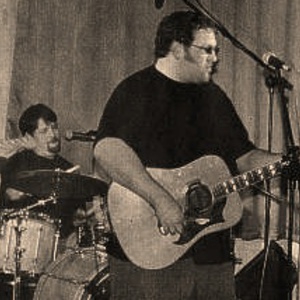
- Meta styles:
- Alternative Country, Alternative/Indie Rock, Folk/Country Rock, Rock & Roll/Roots
- Styles:
- Alt-Country, Americana, Country-Rock, Rock & Roll, Roots Rock
In the late 20th-century world of 15-minute fame and instant gratification, almost anyone with a modicum of talent, ambition, or savvy could be big on MTV or in Hollywood. But to be Big in Iowa was something altogether special. In particular it specifies that you were among the elite roots rock bands in a land teeming with good ones, a quartet for which critical comparisons to such rock icons as the Rolling Stones, Neil Young, Van Morrison, and John Fogerty (all to whom Big in Iowa paid sonic homage) became the rule rather than the exception and for which such allusions...
The Big in Iowa phenomenon was initially foretold in the late '50s by a hot young rock & roll guitarist named Dick Burns, leader of the Do's and Don'ts, a combo that had recorded a number of strong 45 records, earning it a growing reputation and sizeable regional following. After watching the band tear through a performance during an opening slot for him, so impressed was Jerry Lee Lewis by Burns' skills on the six-string that he immediately offered him a spot in his touring group. The young guitarist, however, turned "Killer" down out-of-hand, providing the sensible rationale that the Do's and Don'ts were "big in Iowa." A couple generations later, singer/songwriter and acoustic guitarist Bob Burns made good on his uncle's optimistic comment, turning out some of the finest, most soulful American country-rock of the '90s and into the new century as one member in Cincinnati's Big in Iowa.
The band had its inauspicious beginnings in mid-1995, at a pub in Hamilton, OH. Burns and bass player Ken Glidewell each matriculated at a weekly open jam night, the former with the band (Universoul) he had formed while at Miami (Ohio) University, the latter with popular local alternative cover band Crawdaddy. The two musicians instantly struck up a friendship, and as soon as their respective combos faltered, they began holding songwriting sessions every Wednesday, which soon led them to put together the first lineup of Big in Iowa, featuring lead player Rick House from local band the Used Toys and filled out by keyboardist Dusty Bryant and drummer Jamie O'Keefe. By the end of the year the band was collecting local gigs and working on its first, eponymous album. Though strictly a bar band outing by the standards set on the band's later albums, Big in Iowa, self-released in 1996, was quite promising and received considerable local coverage, even landing on a handful of year-end lists and attracting some major-label attention. On the back of the record and a growing reputation as a live band, Big in Iowa was awarded their first Cammy (Cincinnati's version of Grammy Awards) as Roots Rock Band of the Year in 1997, a trophy they would own over the next several years. By the beginning of 1998, Bryant had left the band and O'Keefe was replaced by Jeff Wilson, thereby formulating the core quartet, which proceeded to prepare its second album for release. Twisted was a substantial improvement on the preceding effort. In addition to standing as Big in Iowa's first mature work, it also began its long-term association with Germany's Blue Rose Records. In addition to its Group Cammy, Twisted also helped to earn individual honors for Burns (Best Vocalist) and House (Best Instrumentalist), as well as new fans such as Mojo Nixon and an appearance at the 1999 South by Southwest Music Festival in Austin, TX. The band contributed a version of "Cinnamon Girl" to the Neil Young tribute album This Note's for You, and then set about working on its third studio album, Bangin' 'n' Knockin', which appeared in Europe at the tail-end of 1999. As outstanding a progression from Twisted as that album was from Big in Iowa, Bangin' provided the band with its most extensive praise yet, including notices in Bucket Full of Brains, No Depression, and Amplifier magazines; as well as its first opportunity to tour Europe (Germany, Austria, the Czech Republic, Denmark, United Kingdom, Switzerland) at the beginning of 2000, and jaunts through the Midwest and New England. Such was the band's reputation that it also began landing opening slots for such lauded peers as Dave Alvin, Dan Baird, the BoDeans, the Bottle Rockets, Cheap Trick, Alejandro Escovedo, Bob Mould, Drivin' N' Cryin', and Jerry Jeff Walker, among others.
After the limited appearance of the live 4 Guys in a Trabi which delightfully documented a show from its first German tour the quartet began making treks to Brooklyn to begin working on its fourth studio album with Eric "Roscoe" Ambel, one of the catalysts of the '80s roots revival as leader of the fabled Del Lords, in the producer's seat. Released in Europe in mid-2001, Green Pop was a quantum leap ahead of anything Big in Iowa had previously recorded, an artistic apex that single-handedly vaulted the band into the upper level of roots rock bands. In Europe, the CD's first pressing sold out in just two weeks, and on a second tour of the continent, the band routinely played to capacity crowds, including a headlining performance before up to 5,000 people at the Wolfstock Festival. Shortly after returning to the United States, House decided to leave the band due to family obligations. The band replaced House with two different guitar players over a one year period and attempted to write material for a new record, but due to an unfortunate series of events, Burns, and Wilson left the band leaving Glidewell as the only original member. Glidewell reassembled the band which sound leans more towards the straight Country sound. The new Big In Iowa lineup has released a CD titled "Geezil Pete" and is currently playing in the Cincinnati area. Burns is currently employed by the Federal Govt. and plans on releasing a solo record in the future. House & Wilson are currently in a cover band called "The Rick House Party Band" and play regularly around the Cincinnati area.
- Sort by
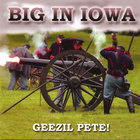
Geezil Pete!
- Year:
- 2006
- Tracks:
- 14
- Bitrate:
- 192 kbps
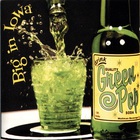
Green Pop
- Year:
- 2001
- Tracks:
- 12
- Bitrate:
- 320 kbps
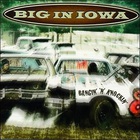
Bangin' 'n' Knockin'
- Year:
- 2000
- Tracks:
- 13
- Bitrate:
- 320 kbps
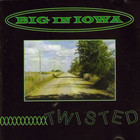
Twisted
- Year:
- 1998
- Tracks:
- 12
- Bitrate:
- 320 kbps
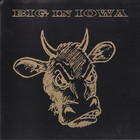
Big In Iowa
- Year:
- 1996
- Tracks:
- 11
- Bitrate:
- 128 kbps
 Backsliders
Backsliders